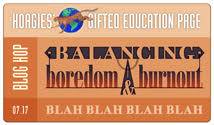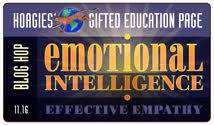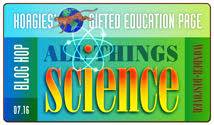The concept of the zone of proximal development comes from the work of Lev Vygotsky (1896-1934) a Russian developmental psychologist whose research into how children learn has gained significant attention in recent years. Vygotsky felt that we should not limit our assessment of a child’s development to what they are capable of at present, but rather what they are able to do in collaboration with an adult or more able peer. “The zone of proximal development has more significance for the dynamics of intellectual development and for the success of instruction than does the actual level of development” (Vygotsky, 1987, p. 209). Vygotsky goes on to qualify this statement by saying that while a child can always do more in collaboration than he can do independently, “he cannot do infinitely more” (p.209) meaning if you’re not developmentally ready, you can be shown a dozen ways to solve a differential equation, but you still may not get it. While age groupings in classrooms make an attempt to gather together children who are at a similar developmental level to facilitate learning within that zone, the diversity within those spaces can mean that we are not always able to see what our students are capable of, especially if we are simply checking to see if they have achieved the learning outcomes that have been set out. Thus the concern that many gifted students do not have the opportunity to reach their potential.
Broadly viewed, there is much that occurs within the zone of proximal development that goes well beyond learning new math equations. Doolittle (1997) tells us that Vygotsky viewed it as an “interdependent social system in which cultural meanings are actively constructed” (p. 88) which perhaps makes it the most influential realm of role models, despite the importance often placed on role models who are well outside our “zone”. Whether at school, at home, arenas or performance halls, we are surrounded by individuals who not only help us shape the reality we find ourselves in but assist us in accomplishing more than we may have been able to on our own.
As a teacher, I am often inclined to think about the zone of proximal development as the learning space within my classroom, but on any given day, students may spend more one on one time with connections they have found through social media and online sharing platforms (vlogs, podcasts, blogs, Netflix and Youtube channels) than with other children I have been amazed by how much children I know have learned through videos and websites, expanding their opportunities to learn in ways that we could not have expected even a decade ago. I don’t think Vygotsky could have imagined this when he formulated his theory in the post-revolution Soviet Union. How is culture being shaped in this ever-expanding network of connections? What new responsibilities do we have as more able peers or adults in both the physical and virtual spaces? The possibilities are both exciting and worrisome.
Motivational speaker Jim Rohn (1930-2009) has been quoted as saying “you’re the average of the five people you spend the most time with.” When this quote was shared with me by a young university student this past summer, he recounted how when he first heard it he interpreted it as a cautionary note around the careful selection of friends. Over time he realized that it was also a call to become someone who could “raise the average” in his own circle of influence through becoming his best person. The ensuing discussion was an amazing voyage through the research and personal development he was doing toward that end leaving me to consider how to bring this ethic not just to my classroom, but to all the “zones” I find myself in.
Click here to find some other perspectives on role models.
References
Doolittle, P.E. (1997). Vygotsky’s zone of proximal development as a theoretical foundation for cooperative learning. Journal on excellence in college teaching, 8(1), 83-103.
Vygotskiĭ, L. S., Rieber, R. W., & Carton, A. (1987). The collected works of L.S. Vygotsky. New York: Plenum Press.










